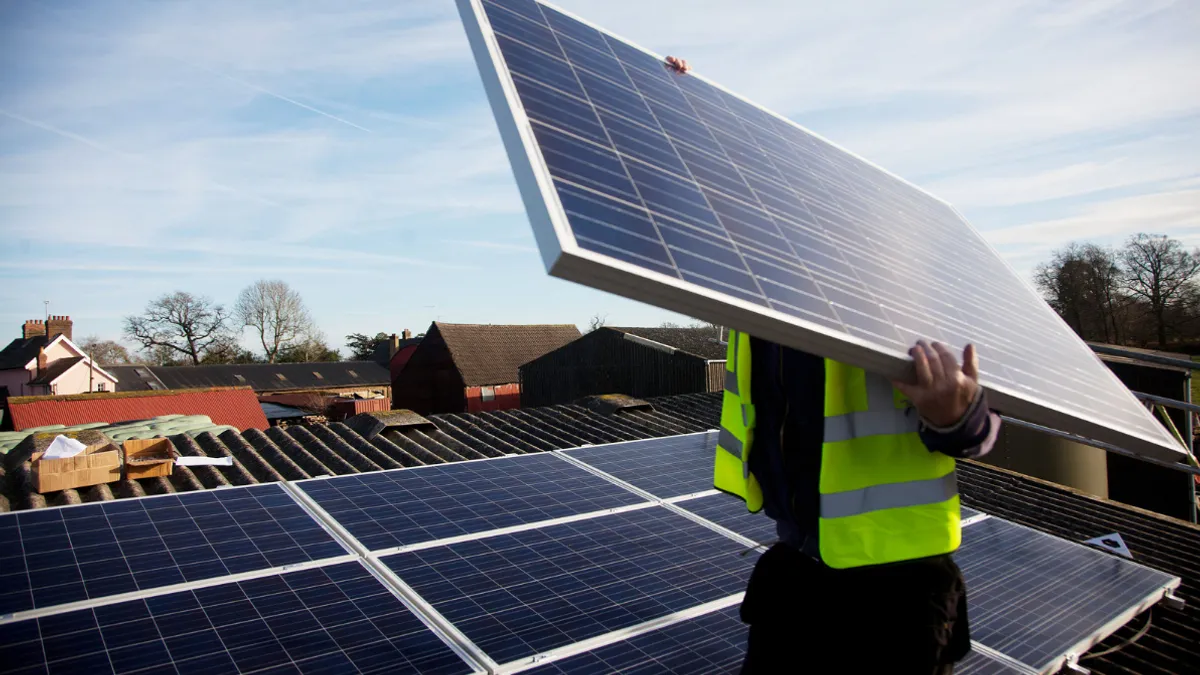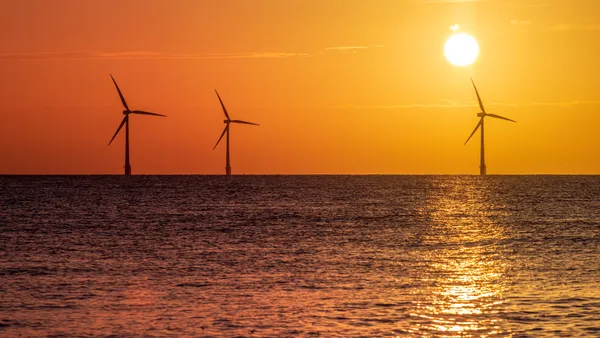Dive Brief:
- The U.S. International Trade Commission last week made public a report sent to President Donald Trump detailing three proposed trade duties aimed at protecting domestic solar panel manufacturers.
- The ITC report, filed on Friday, details how the agency arrived at its unanimous decision in September that the importation of cheap solar panels is unfairly harming U.S. solar panel producers. None of the proposed remedies changed between their announcement at the end of October and the official filing.
- President Donald Trump has 90 days to review the recommendations and make a final decision, which could come as late as January. Meanwhile, a final hearing will take place at the Office of the U.S. Trade Representative on Dec. 6.
Dive Insight:
There isn't a lot of new information in the detailed report sent to Trump by the ITC, but it does compile hours of testimony and research, providing insight into how the agency arrived at its unanimous injury ruling in September.
At the end of October, the four sitting commissioners recommended a series of remedies composed of quotas, tariffs and a licensing fee to impose on imported chrystalline silicon photovoltaic cells and modules — the most popular type of material for solar panels.
The decision is a result of a rare Section 201 investigation, requested in April by Georgia-based solar manufacturer Suniva, which filed for bankruptcy protection earlier in the same month. SolarWorld, another domestic solar manufacturer, later joined.
The two companies are pushing for a combination of tariffs, quotas and a floor price to remain in effect for four years — the longest period duties can remain in effect before review and potential renewal.
The Commission did not accept the companies' proposed remedies, instead proposing a more modest set of duties that included a suggested licensing fee from Solar Energy Industries Association — a solar trade group vehemently opposed to the tariffs. The proposed remedies would be imposed on imports from South Korea and Mexico. China and Taiwan already had duties imposed on their CSPV modules and cells in 2012 and 2015.
The proposed remedies sparked mixed reactions from both sides of the trade case. SEIA and its supporters were relieved that remedies were not as stringent as feared, but continue to aggressively lobby the Trump administration. Suniva and SolarWorld, on the other hand, expressed disappointment and said the proposed remedies were not strong enough to help the companies restart domestic operations.
The ITC report is an official recommendation to the president, but Trump ultimately holds the final decision. The White House has the option to do nothing, devise stiffer tariffs or other remedies or impose the ITC's recommendations. Trump has reportedly expressed a general desire for tariffs, and the solar case may fit the bill.
However, proposing tariffs could provoke retaliatory actions from other countries. Representatives from China at the ITC remedy hearing in October questioned the legality of the injury ruling, likely setting up a fight at the World Trade Organization. According to GTM Research's Shayle Kann, few remedies from past Section 201 cases lasted the full four years because of challenges at WTO.
A Bloomberg report noted China could target Kentucky bourbon and Wisconsin cheese in a similar manner, indirectly affecting House Majority Leader Mitch McConnell (R-KY) and Speaker of the House, Paul Ryan (R-WI). That would create natural opponents, R Street Institute trade analyst Clark Packard told Bloomberg.
The solar trade case already created unusual alliances. Conservative think tank Heritage Foundation and the American Legislative Exchange Council came out against the proposed tariffs. Should Trump impose the ITC's remedies, it would mark a departure from the economic blueprint laid out by his conservative allies. The case even made headlines at Fox News as the two sides seek to sway Trump through his preferred media outlet.













